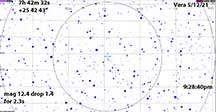
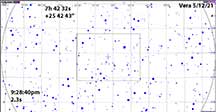
This wide path has a high rank and goes almost centrally over Santa Cruz. The 12.4 star will fade to 13.8 for up to 2.3 seconds. Integration should be minimized. The star is near Pollux in the constellation of Gemini, at 38 degrees altitude, with a trace of late twilight still in the sky.
 |
 |
We had perfect skies as long as we got above the fog. I got low on time and when upper UCSC was foggy, I drove past Kirk's position at Felton-Empire and continued to the airfield on Sunlit Lane. With more time, I'd have driven further, up to the top of Empire Grade to get more separation. As was, Kirk and I ended up very close in terms of cross path. But we got good data, and there were other observers on OW so we hope to get a good profile determined.
I set up in the gravel spot at the fence at the southern end of Bonny Doon airfield. Calm clean skies, with perfect seeing and pin point stars. I had a 2.70 second event; longer than the predicted 2.30 maximum duration. Oblong star caught sideways? Darker than predicted?
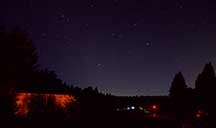 |
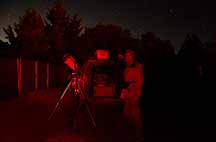 |
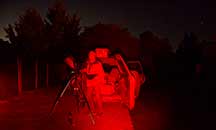 |
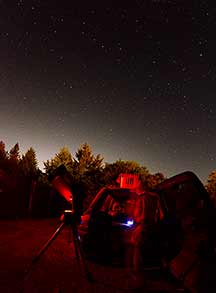 |
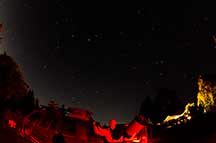 |
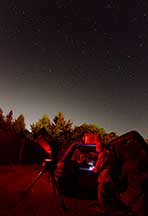 |
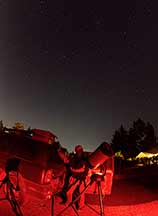 |
Zoomed in on my LiMovie photometry of the event |
My full recording was longer, but I only downloaded the minute or so centered on the brief event. |
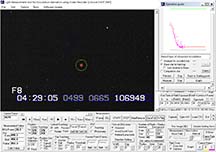 |
Pyote Results
|
The red line says a good high S/N |
Solid event, drop from 12.4 to 13.7 |
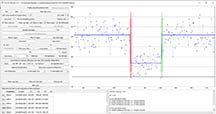 |
|
Kirk's submitted PyOTE solution to IOTA, with his LOG file |
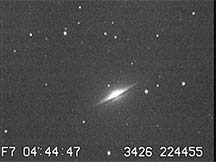 |
Skyplane plot of all observers, and DAMIT photometry solution - a nice fit!